
D-Day 登陆日
¥ 58 3.9折 ¥ 150 九品
仅1件
作者Antony Beevor 著
出版社Penguin
出版时间2009-05
版次1
装帧平装
货号6
上书时间2025-01-05
- 店主推荐
- 最新上架
商品详情
- 品相描述:九品
图书标准信息
- 作者 Antony Beevor 著
- 出版社 Penguin
- 出版时间 2009-05
- 版次 1
- ISBN 9780670918096
- 定价 150.00元
- 装帧 平装
- 开本 16开
- 纸张 胶版纸
- 页数 591页
- 【内容简介】
- The Normandy Landings that took place on D-Day involved by farthe largest invasion fleet ever known. The scale of the undertakingwas simply awesome. What followed them was some of the most cunningand ferocious fighting of the war, at times as savage as anythingseen on the Eastern Front. As casualties mounted, so too did thetensions between the principal commanders on both sides. Meanwhile,French civilians caught in the middle of these battlefields orunder Allied bombing endured terrible suffering. Even the joys ofLiberation had their darker side. The war in northern France markednot just a generation but the whole of the post-war world,profoundly influencing relations between America and Europe. Makinguse of overlooked and new material from over thirty archives inhalf a dozen countries, D-Day is the most vivid and well-researchedaccount yet of the battle of Normandy. As with Stalingrad andBerlin, Antony Beevor's gripping narrative conveys the trueexperience of war.
- 【作者简介】
- Antony Beevor is the author of The Battle for Spain, Crete - TheBattle and the Resistance, which won a Runciman Prize, Paris Afterthe Liberation, 1944-1949, (written with his wife Artemis Cooper),Stalingrad, which won the Samuel Johnson Prize, the Wolfson Prizefor History and the Hawthornden Prize for Literature, Berlin - TheDownfall, which received the first Longman-History Today Trustees'Award, and The Mystery of Olga Chekhova. He also edited A Writer atWar - Vasily Grossman with the Red Army 1941-1945, a compilation ofthe great novelist's wartime notebooks. His most recent work isD-Day: The Battle for Normandy(Viking, May 2009). It immediatelybecame a No 1 Bestseller in five European countries, including theUK and France, and was in the top four in three other countries.His books have appeared in thirty languages and have sold over fourmillion copies. A former chairman of the Society of Authors, he hasreceived an honorary doctorate from Kent University, and is avisiting professor at the School of History, Classics andArchaeology at Birkbeck College, University of London. 'Hissingular ability to make huge historical events accessible to ageneral audience recalls the golden age of British narrativehistory, whose giants include Gibbon, Macaulay and Carlyle.' BoydTonkin in the Independent 'Beevor can be credited withsingle-handedly transforming the reputation of military history.'David Edgar in the Guardian Antony Beevor was educated atWinchester and Sandhurst, where he studied under John Keegan. Aregular officer with the 11th Hussars, he left the Army to write.Antony Beevor was made a Chevalier de l'Ordre des Arts et desLettres by the French government in 1997 and in 2008 was awardedthe Order of the Cross of Terra Mariana by the President ofEstonia. He was elected a Fellow of the Royal Society of Literaturein 1999. He was the 2002-2003 Lees-Knowles lecturer at Cambridge.In 2003, he received the first Longman-History Today Trustees'Award. He is also Visiting Professor at the School of History,Classics and Archaeology at Birkbeck College, University of London.In September 2003, he succeeded Philip Pullman as Chairman of theSociety of Authors and handed over to Helen Dunmore in September,2005. In July 2004, he received an honorary degree of Doctor ofLetters from the University of Kent. He was a judge of the BritishAcademy Book Prize and the David Cohen Prize in 2004, and is amember of the Samuel Johnson Prize steering committee. FromStalingrad to Berlin When I read one particular account of a Germanofficer captured at Stalingrad, I knew what the next book had tobe. This officer, along with a group of exhausted survivors fromthe 297th Infantry Division, were being marched through the streetsof Stalingrad - they could manage only a painful shuffle due tofrostbite and starvation - when a Russian colonel pointing to theruins around, yelled: 'That's how Berlin is going to look!' Russianarmies advancing on Germany in 1944 and 1945 measured their advanceboth from Stalingrad, the furthest point of German advance as wellas the perceived turning point of the war, and by the distancestill left to 'The Lair of the Fascist Beast' - the capital of theReich. The links between the two great battles were intriguing. The8th Guards Army, the largest of Zhukov's formations attackingBerlin, was the old 62nd Army from Stalingrad. Its brutallyeffective commander, General Chuikov, who bestirred his officers togreater activity with hard punches, found however, thatclose-quarter combat in Berlin was rather different from what hehad dubbed 'the Stalingrad Academy of Street-Fighting'. theRussians were taken aback by the almost suicidal bravery offifteen-year-old Hitler Youth armed with Panzerfaust anti-tanklaunchers. Hitler, on the other hand, living almost entirely offwild delusion, persuaded himself that Berlin would be a Stalingradin reverse, with his Ninth and Twelfth Armies cutting off theRussian attackers in a surprise pincer. He refused to acknowledgethat they utterly lacked the material, physical, and moral strengthto launch any sort of counter-attack. And when the Russians foughttheir way into the centre of Berlin, they found the Chancellery ofthe German Reich defended by the Scandinavian SS Nordland Divisionand the remnants of the French SS Charlemagne. These foreigndiehards were among the last to lay down their arms. It was strangeto hear of such experiences from the surviving battalion commanderin a darkened Parisian apartment: an old man who still receivesdeath threats. But the Fall of Berlin, even more than the Battle ofStalingrad, is a terrible story of civilian as well as militarysuffering. The annihilation of East Prussia in January and February1945 provided an atrocious warning of Russian revenge. Germanvillagers who had not been allowed by the Nazi authorities to fleeuntil it was too late, found themselves treated without mercy.Soviet troops were allowed to rape, loot and destroy virtually atwill. When I read in a Moscow archive Beria's reports to Stalin onthe mass suicides of East German civilians, it was quite clear thatneither man had any intention of curbing their troops. Far moreshocking documents were to emerge later in another archive, and Imust admit that I am still unable to make up my mind about the realcauses of such behaviour, especially when so many Russian soldiersand officers showed genuine kindness for German women and children.Russian troops, especially those liberated from the abominabletreatment which they had received in German prisoner of war camps,had much to avenge, but some of their actions almost defy belief aswell as logic. The whole debate over 'rape as a weapon of war' sfar from straightforward, as I think the book will show. Severalother explosive issues also emerged during the course of researchin Moscow archives, but I prefer not to say anything at this stage,partly because I do not want anything to be taken out of context,but also because I need to do more research and double-checkingfrom other directions. Berlin is a much larger subject, both insize and scope, than Stalingrad was, and to cover the ground in asimilar time - three and a half years - is a considerablechallenge. There have been many more archives to visit (in France,Britain, Sweden and the United States, as well as of course Russiaand Germany) and many more people to interview, both civilians andsoldiers. I am quite honestly terrified of the task of turning ourmountains of photocopied documents and tape-recordings into acoherent whole, but I hope that if the structure is right, thenthings will fall into place. The objective is to deliver themanuscript by the end of October 2001 so that the book can come outin May 2002, exactly four years after the publication ofStalingrad.
相关推荐
-

D-DAY诺曼底登陆
九品北京
¥ 60.00
-

D-DAY 诺曼底登陆
九五品枣庄
¥ 680.00
-

诺曼底登陆 D-DAY
九品衡水
¥ 100.00
-
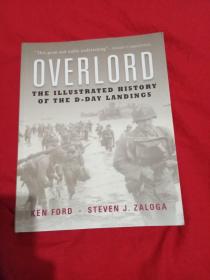
Overlord The D-Day Landings(damaged)—霸主登陆日登陆
八五品沧州
¥ 200.00
-
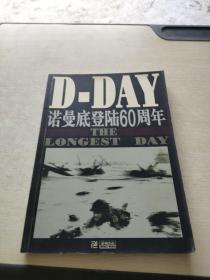
D-DAY 诺曼底登陆60周年
九五品安庆
¥ 4.80
-
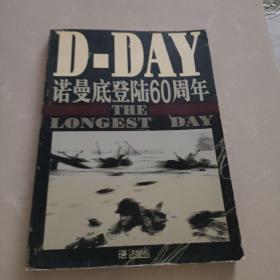
D-DAY 诺曼底登陆60周年
九品长沙
¥ 3.00
-
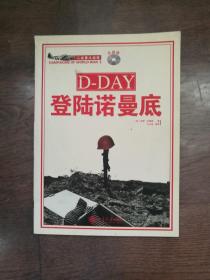
D-DAY登陆诺曼底(无光盘)
九五品上海
¥ 48.00
-

D-DAY登陆诺曼底(无光盘)
八五品衡水
¥ 10.00
-
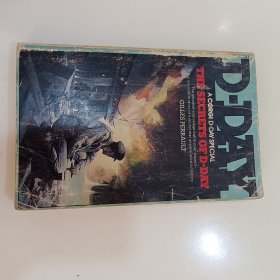
The secrets of D-Day诺曼底登陆日的秘密
三品重庆
¥ 128.00
-

D-Day登陆 诺曼第60周年特集
八五品成都
¥ 5.00
— 没有更多了 —
















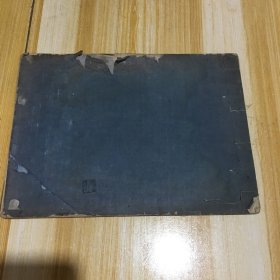














以下为对购买帮助不大的评价